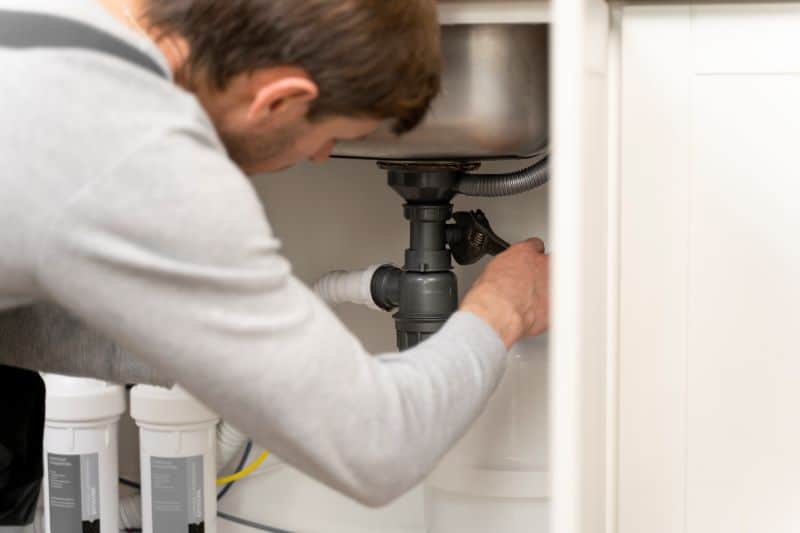Your bathroom is meant to be a sanctuary of cleanliness and comfort, but what do you do when it becomes a source of unpleasant sewer odors? The pungent smell that can occasionally waft from your bathroom isn’t just a nuisance. It could be an indication of underlying issues that require your attention.

Image by Freepik
Who are the Culprits?
Imagine spending money to ensure your bathroom looks good, getting the best service for a bathroom refacing here, and planning it all to a T. After consistent use, you suddenly start smelling something odd, one that won’t go away no matter how many days have passed.
This is actually very common for bathrooms.
But keep in mind that the sewer smell wouldn’t just suddenly emerge for no reason. Hence, here are the five most common causes of a sewer-smelling bathroom:
Blocked Drains and Traps
Sewer odors can often be traced back to blocked or partially clogged drains and traps. Over time, a buildup of hair, soap scum, and other debris can restrict the flow of water, leading to stagnant water in the plumbing system.
When this water sits in the drain or trap, it can emit foul odors. The problem may be compounded by the accumulation of organic material, which can decompose and release unpleasant smells.
Hence, regularly clean and maintain your drains by using appropriate cleaning products or calling a professional plumber for a thorough cleaning. It’s also a good practice to use drain strainers to prevent debris from entering the plumbing system.
Dry P-Trap
The P-trap, which is the U-shaped bend in your plumbing, serves as a barrier to prevent sewer gasses from entering your bathroom. When the water in the P-trap evaporates due to infrequent use or high temperatures, it can create a direct path for sewer gasses to escape into your bathroom.
So, to prevent this, simply run water in infrequently used sinks, showers, or tubs to replenish the water in the P-trap. For floor drains, consider adding a small amount of mineral oil to create a water-sealing barrier that reduces evaporation.
Leaky Toilet Seal
Another common source of sewer odors is a leaky toilet seal. The wax ring that seals the toilet to the floor can deteriorate over time, allowing sewer gasses to escape. This issue can be particularly problematic, as it’s often hidden beneath the toilet.
If you suspect a leaky toilet seal, it’s advisable to consult a professional plumber to assess and replace the wax ring, ensuring a proper seal and eliminating the odor source.
Ventilation Problems
Adequate bathroom ventilation is essential for expelling odors and moisture. If your bathroom lacks proper ventilation, sewer odors may linger longer and become more noticeable. Poor ventilation can also contribute to mold and mildew growth, which can worsen the smell.
Consider installing an exhaust fan or making sure that the existing fan is functioning correctly to improve your bathroom’s ventilation. Additionally, keeping windows open when possible can help circulate fresh air.
Sewer Line Issues
In some cases, sewer odors may be the result of issues with the main sewer line. Cracks, blockages, or leaks in the sewer line can allow sewer gasses to infiltrate your home’s plumbing system. This is a more serious problem that often requires professional inspection and repair.
If you suspect sewer line issues, contact a licensed plumber to conduct a thorough assessment and make the necessary repairs to prevent further odors. Addressing sewer line issues promptly is crucial to preventing sewer odors from entering and lingering in your home.
Fragrance Options For a Pleasant Bathroom
Aside from addressing and eliminating sewer odors, you can enhance the ambiance of your bathroom by introducing pleasant fragrances. Here are some bathroom fragrance options to keep your space smelling fresh and clean:
- Scented Candles: Scented candles not only provide an inviting atmosphere but also fill the air with lovely fragrances. There is a wide variety of scents to choose from, ranging from floral to citrus to earthy notes. However, they are a fire hazard, so make sure to place them safely away from flammable materials and don’t leave them unattended.
- Essential Oil Diffusers: Essential oil diffusers are a popular choice for creating a fragrant atmosphere in your bathroom. These devices disperse the scents of essential oils into the air, offering a wide range of options to suit your preferences. Consider oils like lavender for relaxation, eucalyptus for a fresh scent, or citrus for an uplifting ambiance.
- Potpourri: Potpourri is a combination of dried flowers, herbs, and spices that emit a pleasant aroma. You can place potpourri in decorative bowls or sachets in your bathroom for a natural and visually appealing fragrance option.
- Reed Diffusers: Reed diffusers are a hassle-free way to add a consistent and subtle scent to your bathroom. They consist of scented oils and reed sticks that absorb and release the fragrance gradually. Moreover, you can even customize the scent according to your preferences.
- Air Fresheners: Traditional air fresheners are available in various forms, including sprays, plug-ins, and gel beads. They can help neutralize odors and maintain a consistently pleasant bathroom environment. It’s best to choose a fragrance that complements your bathroom decor.
In a Nutshell
Sewer odors in your bathroom don’t have to remain a mystery. By understanding the causes and implementing these effective solutions, you can banish those unpleasant smells and enjoy a fresh and inviting bathroom once more. Remember, regular maintenance and addressing underlying issues are key to creating a pleasant and odor-free bathroom environment.
